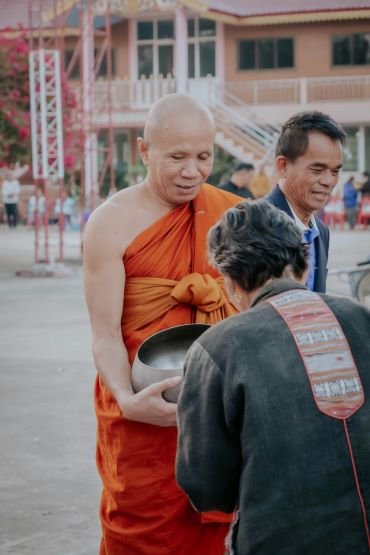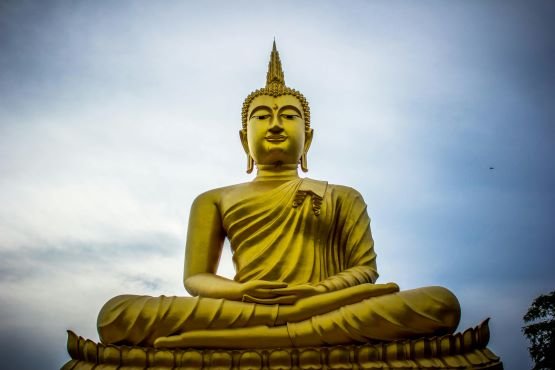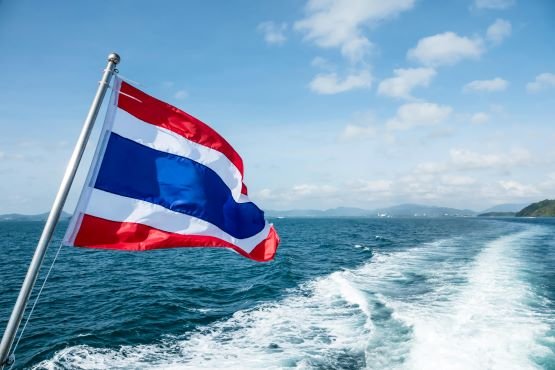
Relocating from Pakistan to Thailand has become a popular choice for many Pakistanis seeking better opportunities, a more relaxed lifestyle, or simply a change in environment. However, this journey is not as straightforward as it may seem. Beneath the allure of sandy beaches and bustling markets lies a complex web of challenges that migrants face. While some Pakistanis successfully adapt to their new surroundings, many encounter significant hurdles that make their relocation journey far from smooth. In this blog, we’ll delve into the major issues faced by Pakistanis moving to Thailand and explore potential solutions to these problems.

Key Challenges in the Relocation Journey

1. Visa Complications One of the most pressing challenges is navigating the Thai visa system. Pakistanis often face stricter requirements compared to citizens of other countries. The application process can be tedious, with demands for extensive documentation, proof of financial stability, and even police clearance certificates. Moreover, visa policies change frequently, leaving many applicants confused and anxious. The fear of visa rejection adds an extra layer of stress to an already challenging process.

2. Language Barrier The Thai language is vastly different from Urdu or English, which makes daily communication a significant hurdle. From ordering food to dealing with legal or banking matters, the inability to speak or understand Thai can lead to frustration and even costly mistakes. For example, negotiating rental agreements or understanding public transportation routes often requires assistance, which is not always readily available.

3. Cultural Differences Adapting to a new culture is never easy. Thai society places a high value on politeness and non-confrontation, which can be difficult for newcomers to grasp. Misunderstandings may arise from different social norms, such as how to greet others, the importance of wai (a traditional Thai greeting), or the expectation to remove shoes before entering homes. Adjusting to the Thai way of life, including their cuisine, festivals, and religious practices, requires patience and an open mind.

4. Limited Job Opportunities Finding employment in Thailand can be a daunting task for Pakistanis. The Thai government restricts certain jobs to locals, and work permits are often challenging to obtain. As a result, many migrants struggle to secure stable and well-paying jobs, leading to financial stress. Even skilled professionals may find their qualifications unrecognized, forcing them to accept lower-paying roles.

5. Discrimination and Stereotypes Unfortunately, some Pakistanis report experiencing discrimination in Thailand. Negative stereotypes about foreigners, particularly those from South Asia, can create barriers to social integration. This often leaves migrants feeling isolated and unwelcome. Discrimination may manifest in various ways, such as difficulty renting apartments, receiving lower-quality service, or being treated with suspicion by authorities.

6. High Cost of Living Although Thailand may appear affordable compared to Western countries, the cost of living is significantly higher than in Pakistan. Rent, transportation, and healthcare expenses can quickly add up, especially in major cities like Bangkok or Phuket. Hidden costs, such as deposits for apartments or high utility bills during the hot season, can further strain budgets.

7. Lack of Community Support Unlike countries with large Pakistani diaspora communities, Thailand has relatively few organized support systems for Pakistani migrants. This lack of a close-knit community can make the transition more challenging, particularly for families. Without a strong support network, newcomers may struggle to find reliable information, emotional support, or assistance during emergencies.
How to Overcome These Challenges

1. Understand Visa Requirements Early Researching and understanding the visa requirements before starting the application process is crucial. Engaging a reputable immigration consultant can help clarify complex procedures. Staying updated on Thai immigration policies through official government websites is also essential. Regularly checking forums and expat groups can provide firsthand insights from those who have successfully navigated the system.

2. Learn Basic Thai Language Skills Learning even a few basic Thai phrases can go a long way. Language apps like Duolingo, Rosetta Stone, or enrolling in local language classes can help bridge the communication gap. Many Thai locals appreciate even small efforts to speak their language, which can foster goodwill. Additionally, carrying a pocket translator or using translation apps can be a lifesaver in critical situations.

3. Embrace Cultural Differences Taking time to learn about Thai culture and social norms can prevent misunderstandings. Reading about Thai customs, attending cultural events, and being open-minded can ease the adjustment process. Watching Thai movies or TV shows and trying local cuisine before moving can also help familiarize oneself with the culture.

4. Explore Freelance and Online Work Since traditional job opportunities may be limited, exploring freelance or online work can be a viable alternative. Platforms like Upwork, Fiverr, or even starting an online business can provide income while allowing flexibility. Teaching English online or offering specialized skills remotely can be lucrative options for those with the right qualifications.
5. Build a Support Network Joining local expat groups on platforms like Facebook or Meetup can help create a sense of community. Networking with other Pakistanis who have successfully relocated can provide valuable advice and emotional support. Participating in community events or volunteering can also help establish connections and combat feelings of isolation.

6. Budget Wisely Careful financial planning is essential. Researching the cost of living in different Thai cities and opting for more affordable areas can make a big difference. Creating a detailed budget for housing, transportation, and other expenses will help avoid financial strain. Keeping an emergency fund for unexpected costs is highly recommended.
7. Seek Legal and Social Assistance If you encounter legal or social issues, seeking help from local NGOs or migrant support organizations can be beneficial. Many of these groups provide free or low-cost services, including legal advice, job training, and language classes. Consulting with legal experts can also help resolve disputes or clarify contractual obligations.
Conclusion
Relocating from Pakistan to Thailand offers both opportunities and challenges. While the journey may seem daunting, proper planning, adaptability, and persistence can turn these obstacles into manageable stepping stones. By understanding and addressing the common issues faced by Pakistani migrants, individuals and families can create a smoother transition and enjoy the many benefits that Thailand has to offer. Whether you’re considering the move or are already in Thailand, embracing these solutions can make all the difference. Ultimately, with determination and resourcefulness, a successful and fulfilling life in Thailand is within reach.




